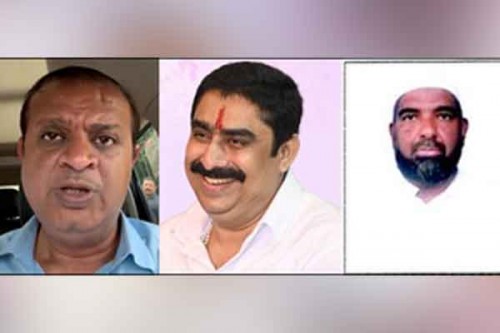Constituency Watch: Mumbai North East a 'pendulum' LS seat, repeated political parties only thrice in 57 years

Mumbai, May 14 (IANS) The prestigious Mumbai North East Lok Sabha seat is known for its ‘mood-swings’ as from 1967, it has repeated a political party/candidate only thrice and has elected several stalwarts in the 14 elections it has witnessed, including three who became Union ministers.
In these elections, the BJP stands within the constituency’s ‘threshold limit’ with its candidate, MLA Mihir C Kotecha fervently hoping to break the jinx by giving a hat-trick to his party.
Kotecha was fielded in place of the sitting MP Manoj Kotak (2019), who had been nominated in place of the then MP Kirit Somaiya (2014).
Now, the BJP is hopeful of bagging the seat for a third-consecutive time, which is a tough task, given the constituency’s history.
He is challenged by a formidable contender, INDIA-MVA-Shiv Sena (UBT)’s Sanjay Dina Patil, who was the undivided NCP’s MP from this seat in 2009, but lost to Somaiya in the 2014 BJP-Narendra Modi ‘wave’.
The BJP repeated the feat in 2019 in the second ‘Modi wave’ when Kotak sailed through easily.
In the absence of a perceptible wave in 2024, the BJP is making an all-out bid to counter the anti-incumbency factor plus the discerning voters’ attitude of rarely giving more than two opportunities to any party contesting from here.
The Prakash Ambedkar-led Vanchit Bahujan Aghadi (VBA) has fielded Daulat K Khan, but unlike 2019 when the party was in alliance with the All-India Majlis-e-Ittehadul Muslimeen (AIMIM), this time he’s contesting solo with a question mark on his prospects in the constituency.
Way back in 1967 when the Congress’ SG Barve contested the seat, he won but died a week after the results were announced. The subsequent bypoll that year was won by his sister, Tara G. Sapre, while in 1971, Rajaram G Kulkarni bagged it.
In 1977, the Janata Party cannonball Subramanian Swamy was elected and repeated the feat in 1980.
The ping-pong game started from 1984 when the Congress’ Gurudas Kamat was elected, followed by the BJP’s Jayawantiben Mehta (1989), Congress' Kamat (1991), BJP’s Pramod Mahajan (1996), Congress' Kamat (1988), BJP's Somaiya (1999), Kamat (2004), NCP’s Patil (2009), BJP’s Somaiya (2014) and Kotak (2019).
Against this backdrop, it remains to be seen whether or not the constituency lives up to its no-nonsense reputation of having a ‘politically-conscious but incumbency-sensitive’ electorate.
Three of the MPs (all deceased now) elected from here went on to become Union ministers in different governments over the years – Kamat, Mehta and Mahajan – while Swamy was a member of the defunct Planning Commission of India.
Largely a middle class-dominated area, the MNE constituency comprises a mix of Gujaratis-Marathis, plus a significant chunk of Dalits and minorities, particularly in the north-eastern parts that are considered a decisive factor for any candidate.
The seat comprises six Assembly segments, of which three are held by the BJP, three by the Maha Vikas Aghadi (MVA) alliance comprising two of Shiv Sena (UBT) and one of Samajwadi Party (SP).
They include the BJP’s Mulund (MLA Mihir C. Kotecha), Ghatkopar East (MLA Parag Shah), Ghatkopar West (MLA Ram Kadam); SS(UBT)’s Vikhroli (MLA Sunil Raut) and Bhandup West (MLA Ramesh Korgaonkar); and SP’s Mankhurd-Shivaji Nagar (MLA Abu Asim Azmi).
The constituency has its share of woes akin to most other regions of Mumbai like pollution, traffic, crowded roads, overcrowded suburban trains, a concentration of industries, haphazard development, lack of adequate water supply and other civic amenities, et al, though things are gradually improving.

|

|

